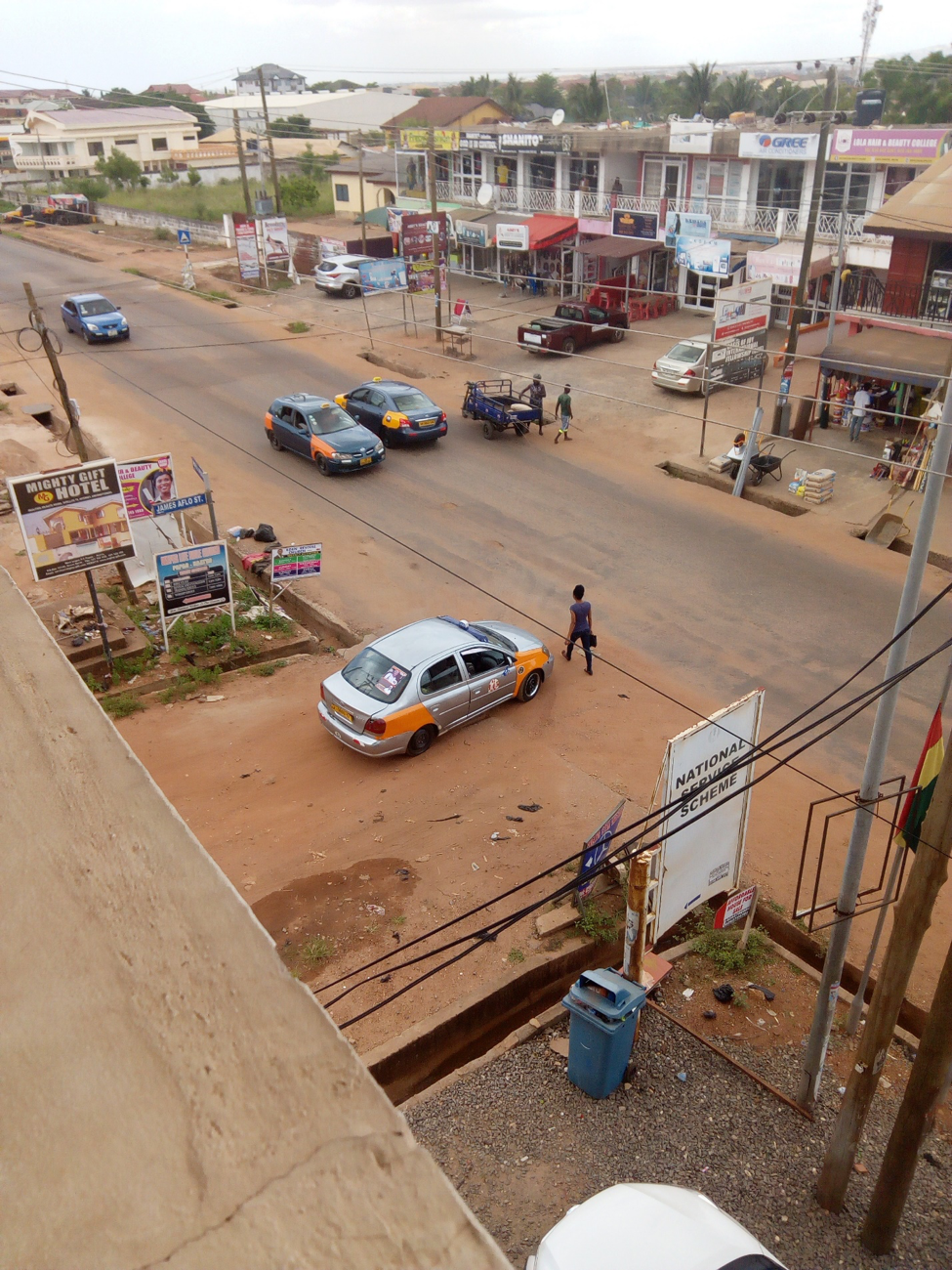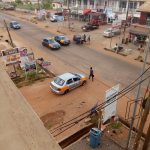TRANSPORTATION BY LAND

As soon as I hit the road in Ghana, I’m greeted with a hissing sound. Now this is nothing unusual, in fact it’s quite common. If it’s your first time in Ghana, then don’t be alarmed. No one is trying to be rude to you. In a way, it’s no different from the honking of cars that you see in New York City or any other large metropolis.
That hissing sound you hear is simply how people communicate with others on the road, signaling others to either stop or move with them.
You’ll hear this a lot, especially when you use taxis to get around the cities in Ghana. As Ghana prospers, more and more people have become accustomed to use taxis to get around. Taxis charge based on distance as well as the traffic encountered on the route. These are the taxis most of us are used to, but Ghana also offers a different kind of taxi. One that takes off from a predetermined pick up spot, where they wait until they fill the taxi, and then drop people off at a specific destination. This is called a “loading taxi” and you can find them at various locations.
The taxis are a bit like taxi services in other countries, namely in that some taxis are owned by their drivers, while other owners pay drivers on a daily or weekly basis. This “work and pay” format is quite popular but still not easy and since being able to grab enough customers to meet a daily target requires street smarts. The drivers take is the amount that exceeds the daily target to the owner, and the gas cost for the day.
As I look around, I realize that the variety of car brands used in the taxi business has grown. There’s still a gap in the type of taxis available, everything from cars that are clearly new, to old and beat up cars. Looks aren’t everything however. As I stop one beat up taxi, and ask him how much the fare is, he wants to charge me almost 30% more than a brand new car!
As I made the rounds today in Accra, Haatso and Madina, I recognized a wealth of brands: Hyundaii i10 and Elantra, Kia Rio and Morning, Toyota Corolla and Yaris, Opel Astra and Cadet, Nissan Match and Micra.
As I get out of the taxi, the driver of a “trotro” hollers at me. The “trotro” really makes me feel like you are in Ghana. It’s patronized by people from different stations in life, both high and low. Pick any day of the week, and you’re liable to find people in suits sitting next to market women sporting pans. They’re not comfortable, but they’ll get the job done, which means you’ll get from point A to point B. I don’t recommend them if you’re in a hurry though.
In Ghana, you’re not limited to cars for commercial transportation. Motorcycles are now popular as well, and it’s common to see young men zipping around town picking up passengers. Helmets optional. While it’s a popular means of transportation in the northern regions, I think I’ll stick to my taxis for now. Call me crazy, but I prefer to be in one piece when I arrive at my destination.
Ok so, you may see this contraption on the roads while you’re travelling around West Africa. They go by various names, like “Mahama Camboo” or “keke”, but if you say “keke” most people will understand what you’re talking about. While I haven’t tried one myself, some of my friends swear by it since it’s like riding a smaller taxi, and much more affordable.
Finally, Ghana is on par with the rest of the sharing economy. Uber has a very large presence, especially in Accra. When I first hear of their service I was a bit confused. I have to download an app in order to ride with them? But as soon as I used it, I realized how convenient it is. Now Uber drivers are everywhere. Uber works pretty much like everywhere else in the world, (or so I hear), and they charge for peak times. When it comes to Uber drivers don’t be afraid to speak your mind. I had to tell my last Uber driver to put on the AC, and after some grumbling about the AC not working he turned it on.
I am really liking this power of the review system.
When it comes to long distance journeys, buses are king. You’ll find large, comfortable buses fueling up at the bus stations, where you can find a ticket for your cross country destination. Popular brands are VIP, OA, STC and Metro Mass. Word of warning, if you don’t pre-purchase a ticket before you get to the terminal, you’ll have to wait for the next bus.
Most buses are comfortable and sport air conditioning, while being affordable as well as safe.
So now you know all your options for transportation when you come to Ghana. While some prefer one means or another, travel in Ghana is still affordable, relatively reliable, and will continue to change as our country changes. As our government continues to implement changes to the railroad system, newer means of transportation are sure to develop and I’m curious to see where all this where go.











